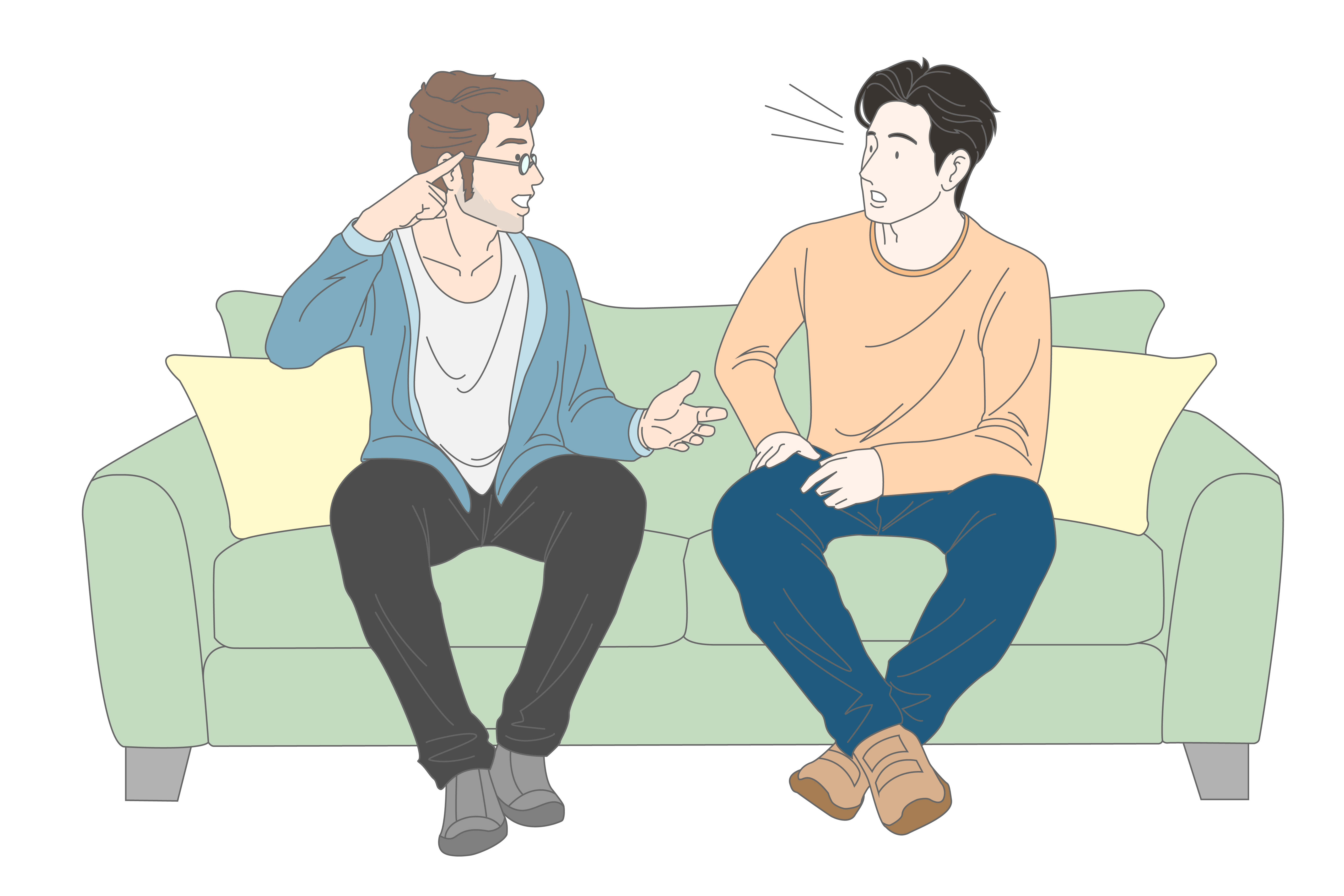INTRODUCE
Many Italians love to communicate not only through words but also through gestures. Knowing the meaning behind their gestures can save you from a lot of trouble!

PRESENT
STEP A EXPRESSIONS
Go over the first two expressions with your tutor and answer the questions. Then, guess the meaning of the third expression based on the clues provided.

1. If something has a negative connotation, many people associate a bad feeling or emotion with it.
It bothers me that a lot of tourists don’t know that the thumbs up sign has a negative connotation here. We usually use it when we’re unhappy with someone.
Q: Does the peace sign have a negative connotation in Japan? Why or why not?

2. An insult is a rude or an insensitive remark or action that is meant to hurt or offend someone.
I didn’t know that it’s an insult to sit in the back of a taxi in Australia!
Q: Is sitting in the back of a taxi considered an insult in Japan? Why or why not?

3. .
I was so scared! The guy standing in front of me suddenly shouted and began to gesticulate wildly, pointing at my friend and waving his hands in my face!
Q: What do you think gesticulate means?
STEP B SPEAK YOUR MIND
Sometimes you want to say what you would do if you were in someone else’s situation.
My coworker watches cat videos online at work all day. Do you think I should tell my boss?
If I were you, I would just ignore it. Don’t you always text me while you’re at work?
UNDERSTAND
LISTENING
Satoshi is doing a homestay in Italy. He’s talking with Marco, a member of the family he’s staying with.
 |
TRIVIA
If you ever go to Italy, be careful! Holding out your hand palm-side up may seem like an innocent gesture, but it isn’t in Italy. This gesture is called ma guarda questo (take a look at him/her). It’s used to criticize or make fun of another person’s actions, words, or appearance.
※Please note the photo shown is not the ma guarda questo gesture.

PRACTICE
Rephrase the sentences using the expressions in the box. Some expressions may be used more than once, and the form of some expressions may need to be changed.
ex. Lizzy always moves her hands around when she argues.
→ Lizzy always gesticulates when she argues.

1. In some countries, it’s considered offensive to tip a waiter.

2. Carl just found out that the word mashi in Japanese doesn’t have a positive meaning. He thought it was just used to describe the better of two options!

3. Two men were arguing and waving their hands and arms wildly on the train this morning.

4. Linda wasn’t aware that the American slang word she used had a bad meaning in the UK.

5. In China, it’s rude to point the spout of a teapot at someone when serving tea.
CHALLENGE
Challenge 1
It’s the first day of your month-long vacation with your American friend in Italy. You are both excited yet nervous to explore because you don’t know much about Italian culture. Listen to a podcast about a traveler’s experience in Italy. Then, talk about it with your friend.
Today's Expressions
- a negative connotation
- an insult
- gesticulate
Speak Your Mind
- If I were you, I would…
 |
Challenge 2
What do you think? What does your tutor think? Discuss.
 If Time
If TimeAllows
1 GESTURES |
2 COMMUNICATING ABROAD |
|---|---|
|
1 GESTURES
|
2COMMUNICATING ABROAD
|
FEEDBACK
I can listen to and understand someone talking about gestures.
LESSON GOAL ACHIEVEMENT
-
4
Very GoodCould complete the task with ease
-
3
GoodCould complete the task with some clarifications
-
2
FairCould complete the task with additional instructions
-
1
PoorCould somehow complete the task with difficulty
PERSONALIZED FEEDBACK
- RANGE
the ability to use a wide variety of vocabulary - ACCURACY
the ability to speak correctly - FLUENCY
the ability to speak smoothly without pauses or fillers - INTERACTION
the ability to manage a conversation

